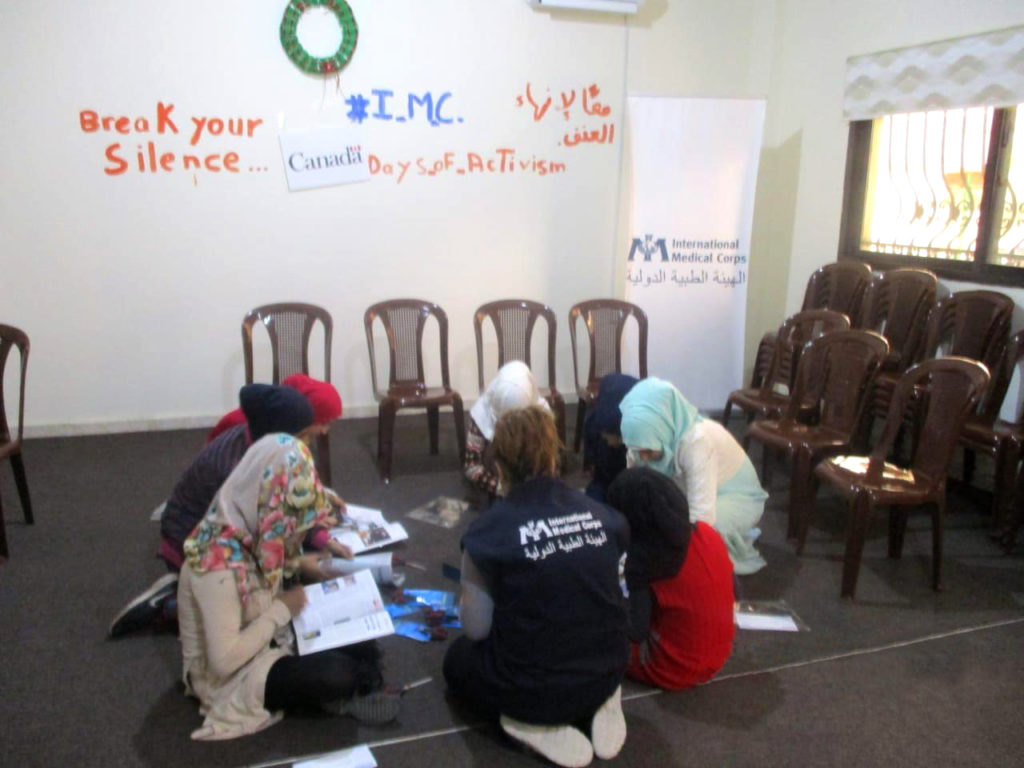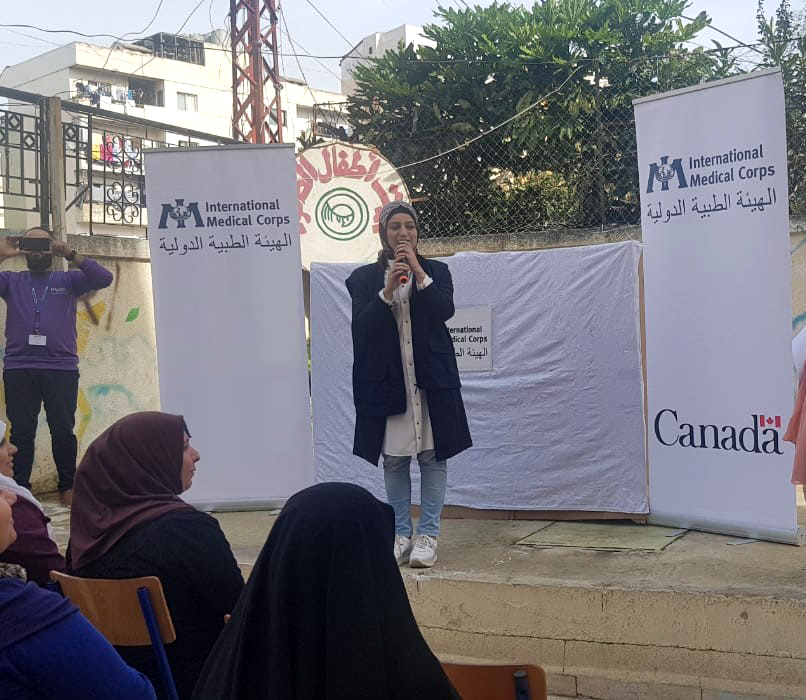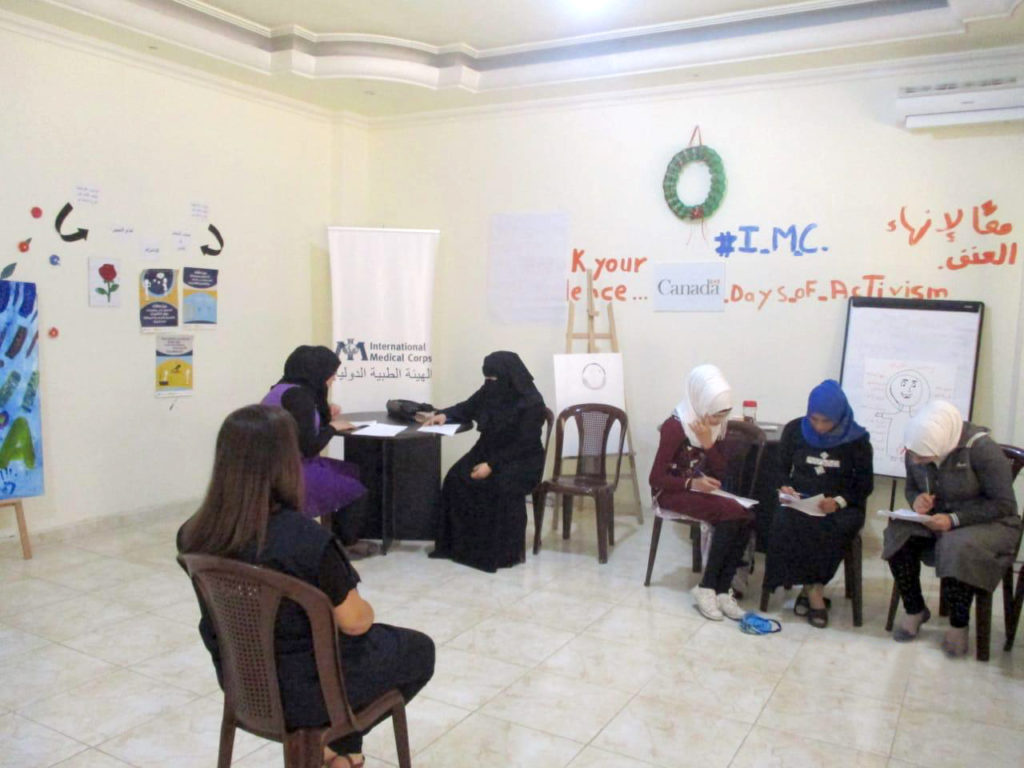Note: The names of the people in this story have been changed for their protection.
Razan, a 26-year-old married woman and a mother of three, was experiencing symptoms of depression, such as emotional distress and isolation. She would often find herself crying for no reason, was having trouble sleeping and had been isolating herself from her friends and family. In addition, Razan and her husband were experiencing marital problems. Communication was difficult, and every little discussion would turn into a big argument. Her mental health and psychosocial condition were preventing her, both physically and mentally, from being present and being able to enjoy what life had to offer.
Then Razan was recruited to participate in an interpersonal psychotherapy support group intervention that International Medical Corps is implementing in Lebanon. After participating in the group, she started feeling less alone and less isolated. She realized that her problems and her symptoms were common, and she was able to relate to her peers in the group, which made her feel understood and accepted. It also gave her hope and reassurance that she can find a solution to any problem she may face in the future.

Razan says, “Group therapy was very beneficial to me. My marriage is better; my husband and I can actually communicate better and discuss issues, rather than angrily argue.” Of the skills she learned in the support group, Razan says that she is now able to take decisions with confidence, as well as resolve conflicts without getting angry.
The group interpersonal psychotherapy intervention that Razan—as well as other Syrian refugees and vulnerable Lebanese men and women—participated in is part of a project that International Medical Corps is developing in coordination with the Lebanon Mental Health and Psychosocial Support (MHPSS) task force, chaired by the National Mental Health Program (NMHP) within the Ministry of Public Health (MoPH). Two years into the implementation of this capacity-building activity, International Medical Corps and the NMHP aim to fully build the competency of three interpersonal psychotherapy trainers in the country, and pilot a new approach of engaging non-specialists to use this interpersonal psychotherapy, a scalable psychological intervention developed by WHO and Columbia University, in their daily practices to provide short-term quality and evidence-based services to beneficiaries. The pilot project is financially supported by Government Affairs Canada.

Like Razan, Sarah and Reem are women who participated in the group intervention and reported improvements in their lives. Reem says, “These sessions helped me better communicate with my husband and children,” while Sarah says that the sessions helped her overcome her suicidal thoughts. “I was in a very dark place,” she explains. “My wish was to die. I wasn’t sleeping well. I wasn’t eating well. I isolated myself from everyone.” She continues to express her gratitude for the interpersonal psychotherapy support group sessions she was part of. “They saved me,” she concludes.
Ali, one of the trainers who worked directly with providers and beneficiaries, says that in addition to acquiring new skills that have added to his professional knowledge, he experienced personal fulfillment from observing how a new therapy method was helping Syrian refugees and vulnerable Lebanese better cope with the daily stressors of their lives, including depression and anxiety.
Ali says, “This training is extremely vital to tackle a very important, and very common, mental health disorder that still carries so much stigma: depression.”
International Medical Corps is coordinating with Columbia University to complete the training of non-mental health specialists who are being supervised by the qualified trainer who has already completed the individual interpersonal psychotherapy training. International Medical Corps will share the outcomes of this pilot project with the NMHP to study the possibility of scaling-up the group’s interpersonal psychotherapy approach among non-mental health specialists throughout the country.
